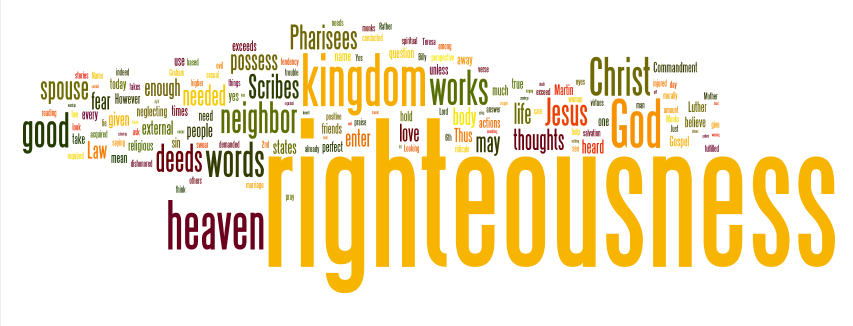Jesus taught some interesting lessons about righteousness. First he addressed man’s interpretation and form of practice. Then He discussed it from God’s point of view.
He discussed the example set by the religious leaders: those who sat in the seat of Moses teaching and judging all matters of life based on the law; specifically their interpretation and/or extensions of it. He said “unless your righteousness exceeds the righteousness of the scribes and Pharisees, you will by no means enter the kingdom of heaven” (Matthew 5:20).
Later He discussed the ways of the kingdom of God. On the subject of provision He said “seek first the kingdom of God and His righteousness, and all these things shall be added to you” (Matthew 6:33-34). He, therefore, made a distinction between man’s idea of righteousness and God’s. A wise student of the LORD pays attention to the distinction.
RELEVANCE
Those in positions of authority, whether civil, political, economic or religious, set the standards and modes of practices and behavior. Judgment is based on those standards. The scribes and Pharisees illustrated a double standard. They were impartial. Their judgment was based on external practices; whereas God looks at the heart. They sought the praise and applause of men; but God desires we seek His acceptance. They were proud of their performance of rituals and outward acts, thinking it accounted to righteousness; but God sees sacrifices of a heart of faith accounting to righteousness. They denied the Messiahship and Lordship of Christ; yet God accounted to Him all righteousness. He reset the standard. He is the standard.
REFLECT AND RELATE
Think about the codes of conduct—ethics and morality so to say—you have adopted based on man’s example. Consider civil, political, economic and religious frames of reference. What is God’s Word and your heart telling you compared to what man might have been telling/teaching you?
REFERENCES
John 16:8; Romans 4:1-5:5

